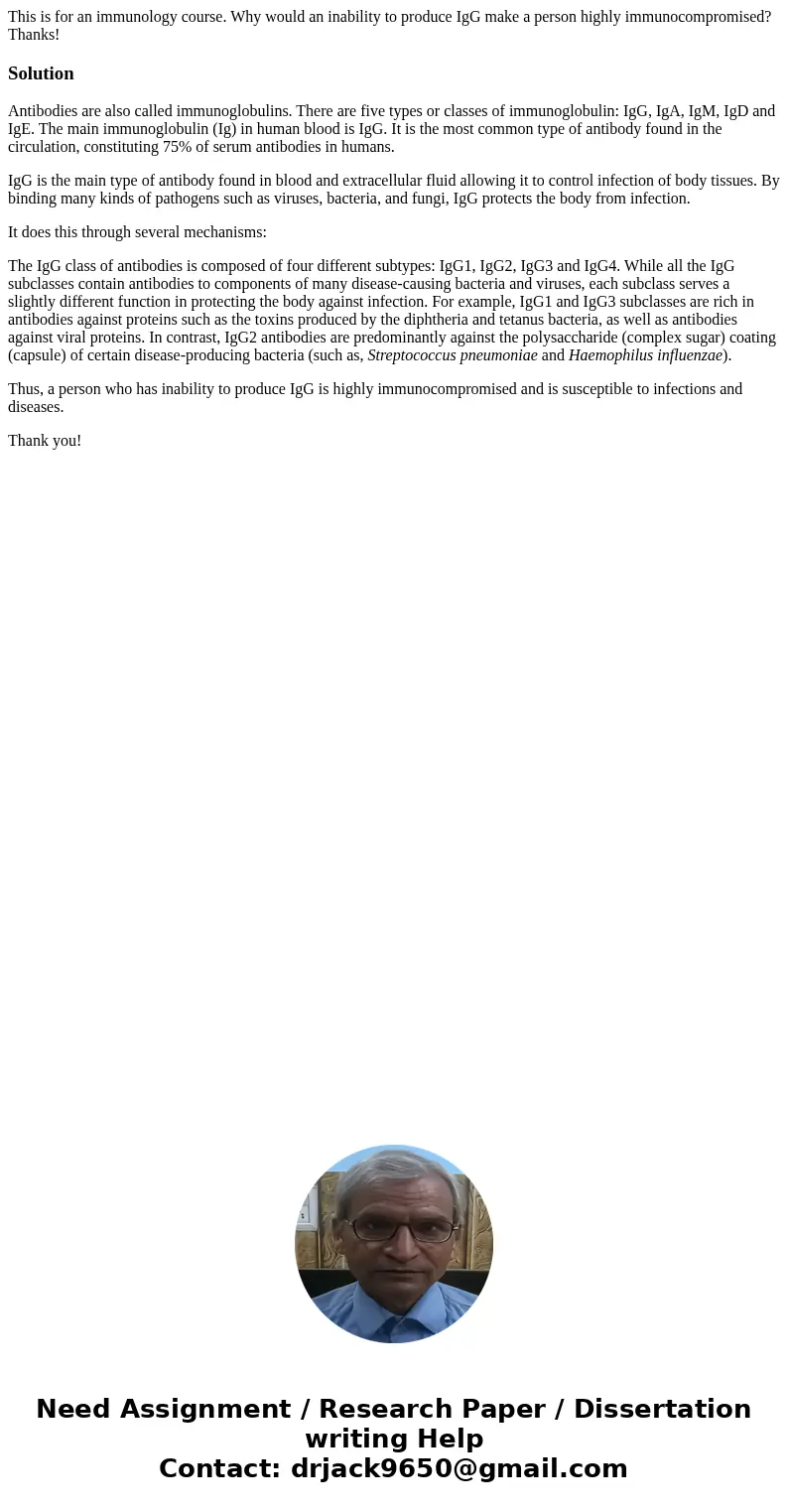This is for an immunology course Why would an inability to p
This is for an immunology course. Why would an inability to produce IgG make a person highly immunocompromised? Thanks!
Solution
Antibodies are also called immunoglobulins. There are five types or classes of immunoglobulin: IgG, IgA, IgM, IgD and IgE. The main immunoglobulin (Ig) in human blood is IgG. It is the most common type of antibody found in the circulation, constituting 75% of serum antibodies in humans.
IgG is the main type of antibody found in blood and extracellular fluid allowing it to control infection of body tissues. By binding many kinds of pathogens such as viruses, bacteria, and fungi, IgG protects the body from infection.
It does this through several mechanisms:
The IgG class of antibodies is composed of four different subtypes: IgG1, IgG2, IgG3 and IgG4. While all the IgG subclasses contain antibodies to components of many disease-causing bacteria and viruses, each subclass serves a slightly different function in protecting the body against infection. For example, IgG1 and IgG3 subclasses are rich in antibodies against proteins such as the toxins produced by the diphtheria and tetanus bacteria, as well as antibodies against viral proteins. In contrast, IgG2 antibodies are predominantly against the polysaccharide (complex sugar) coating (capsule) of certain disease-producing bacteria (such as, Streptococcus pneumoniae and Haemophilus influenzae).
Thus, a person who has inability to produce IgG is highly immunocompromised and is susceptible to infections and diseases.
Thank you!

 Homework Sourse
Homework Sourse